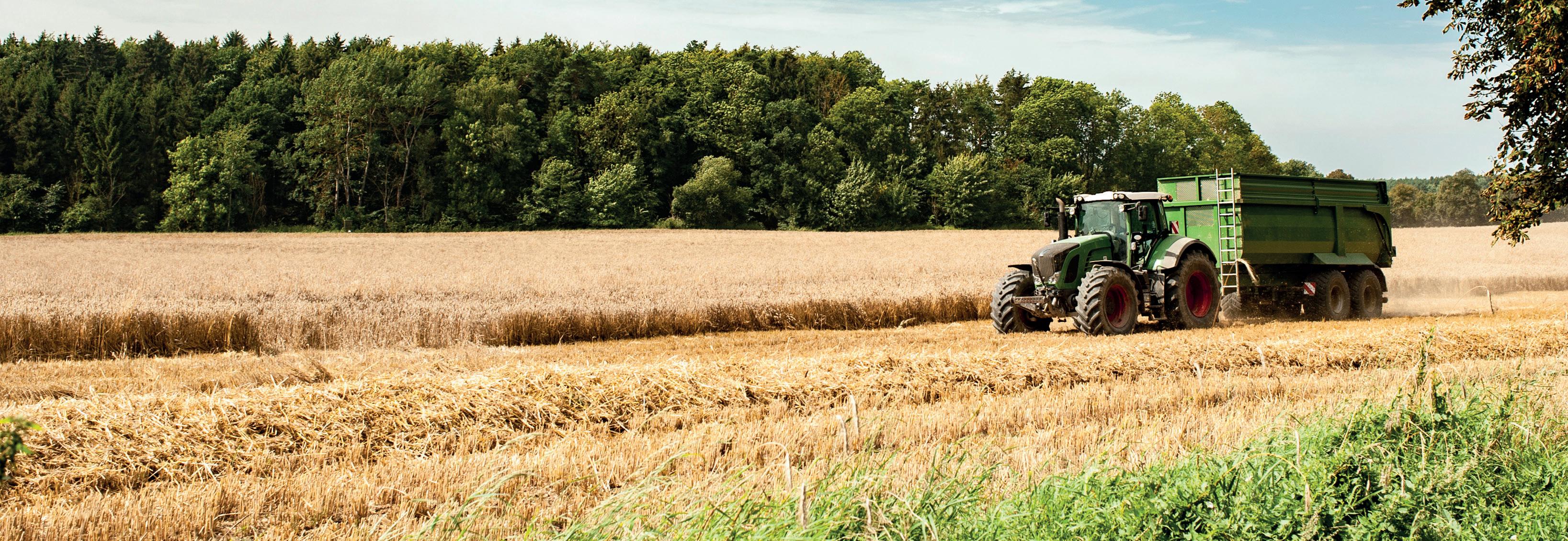
7 minute read
Enough to make farmers give up
Call us today or visit our website: 01227763939 furleypage.co.uk


FARMERS NEED TO GET
THEIR AFFAIRS IN ORDER
Farmers are being urged to ensure they have up-to-date succession plans in place following the launch of the Agricultural Transition Plan following the UK’s departure from the EU.
Tom Chiffers, from national law firm Clarke Willmott LLP, said that in “a period of great change”, farmers needed to be ready to deal with the consequences in order to avoid future costly disputes over succession.
The government’s Agricultural Transition Plan (ATP) outlines a timescale to change the way farming is funded, managed and incentivised, which will have a significant impact on the income of farms and the industry.
Tom, a partner in Clarke Willmott’s Private Capital team, referred to the phasing out of Basic Payments, pointing out: “All direct payments will be reduced progressively, but with bigger reductions on the higher payment bands”.
“Direct payments will be replaced by a new universally accessible Environmental Land Management scheme that will reward farmers, growers and land managers for delivering public goods, with an anticipated 50 to 60% drop in funding in real terms by 2030.
“While there is still much uncertainty and lack of clarity as to what the new payment schemes will look like, that there is an expectation there will be a significant drop in funding for all farmers at the end of the transition plan in 2027.
“In addition to the ATP, the Government has been applying greater scrutiny to both inheritance tax and capital gains tax, and there are concerns that the generous inheritance tax reliefs currently available to farmers in the form of Business Property Relief and Agricultural Property Relief could be cut or even abolished at some point in the future.
“All of this means that farmers need to be in a state of financial and legal preparedness, with a robust succession plan in place which should include the right kind of will.”
Clarke Willmott has developed a free, online‘Which Will?’toolthatprompts the user to think about what is important to them when making a will and recommends whichwillbest meetstheir needs.
TACKLING UNAUTHORISED
Supporting the rural community for over 230 years
We have a real commitment to the rural sector, providing responsive and accessible legal advice to farmers, producers and their suppliers.
If your business needs help with:
• Contracts and transactions • Diversifi cation • Property purchase and lease negotiation • Equine law • Employment
If you would like help with:
• Family law and divorce • Residential conveyancing • Tax planning and trusts • Wills and estate administration
Contact us today
Canterbury 01227 643250 Maidstone 01622 698000 Tenterden 01580 765722
enquiries@whitehead-monckton.co.uk www.whitehead-monckton.co.uk
ENCAMPMENTS
The Government has said it will strengthen police powers and create a new criminal offence to tackle unauthorised encampments.
This new offence will specifically target trespassers who cause disruption to local communities and use vehicles to reside on land. Police will be given the powers to seize vehicles and arrest offenders.
Mark Bridgeman, President of the Country Land and Business Association (CLA), said: “For years, farmers and landowners have been severely affected by the damage that can be caused by unauthorised encampments.
“From their businesses being disrupted and their families being threatened, getting the situation resolved is a stressful and time-consuming process and costs thousands of pounds in legal fees and clear-up costs. The new powers, which the CLA has strongly supported, will be welcome by rural communities.
“Police will now have more powers to deal with unauthorised encampments, so it’s vitally important they use this authority to tackle incidents head-on and take the pressure off landowners.”
The criminal offence, due to be introduced as part of a major new criminal justice bill, will apply in cases where: • A person is aged 18 or over and using vehicles to reside on the land (ensuring occasional campers are not affected) • The trespassers are residing or intending to reside on land without the consent of the occupier (ensuring unintentional instances of trespass are not affected, such as ramblers or hikers) • They have caused or are likely to cause significant damage, disruption or distress • They fail to respond to a request from the occupier or police to leave the land and remove their property or they return to the land within 12 months of that request with an intention to reside with a vehicle.
LEGAL LANDOWNERS, LOCKDOWN WALKERS AND THE LAW
Your duty of care as a landowner to keep people on your land safe.
Farmers and landowners may have noticed an increase in the number of people accessing their land over the past few months. Lockdown restrictions and limitations on travel have meant more people are exploring their local area and enjoying the great outdoors on their doorstep.
What if someone having a socially distanced walk with a friend on your land is injured by tripping over a protruding tree trunk or deteriorated pathway? Would you, as the landowner, be liable? Are you required to carry out regular checks on rights of way across your land?
The short answer is no. The House of Lords (now Supreme Court) decided in the case of McGeown-v-Northern Ireland Housing Association (1994) that a landowner owes no duty under the Occupiers Liability Act 1957, in respect of nonfeasance, to maintain a public right of way passing over his land – in other words, allowing the path to deteriorate naturally is acceptable. On the other hand, there could be liability for misfeasance, for example if a hole is dug in the middle of the right of way.
With people walking in their local area more than they may have previously, some may not be fully aware of the designated paths or be familiar with the area. This could see them trespass on to land. Where does the law stand on trespassers?
There may be a potential liability under the Occupiers Liability Act 1984 (OLA) which states that an occupier of a property owes a duty to a person who is not a visitor (i.e. a trespasser) if he is aware of a danger or has reasonable grounds to know that one exists. Clearly the 1984 Act recognises it would be unfair to hold occupiers liable for injury to trespassers whom they do not know are present or are likely to be present.
So, if you were the owner of private land and have had cause to stop people from entering the land, then this would arguably arm you with knowledge that, although not invited to be there and therefore not visitors, people are likely to trespass. The duty is to take care as is reasonable in all the circumstances, so setting traps to ward people off would probably see you fall foul of the act, as could unguarded machinery or defective premises.
A High Court decision of Buckett-v-Staff ordshire County Council (2015) dismissed a claim where a young boy who had trespassed on school grounds was injured when he jumped onto a skylight. Although it was foreseen that children were likely to trespass, the skylight’s “structure, makeup and location” did not constitute a danger. The case did highlight the importance of keeping good maintenance records because the claimant in this case was unable to establish that the skylight was defective. Had he been able to do so then the duty arising under Section 1(1)(a) of the OLA would have likely been triggered.
Further, there is not likely to be any liability for premises that were not dangerous in themselves but where misuse by the visitor caused an injury. So, if a walker decides to climb a wall instead of using the gate right next to it, then no negligence on behalf of the landowner should be found.
However, if you are aware of particular dangers on your land, such as poisonous berries that children might eat or deep ponds obscured by foliage, then the duty is to be specifi c with your warnings. A sign saying “Warning! Might be dangerous!” is unlikely to absolve you of liability for a danger you are aware of. Warnings must be specifi c and clear. So in our examples one would expect the poisonous berries to be fenced off , with a sign saying “Poisonous – do not eat” and hidden dangers clearly highlighted.
Finally, if you embrace the much-needed collective stretch of the legs post lockdown and happily invite people on to your land, then your duty would be under the Occupier’s Liability Act 1957, which is to take such care as in all the circumstances of the case is reasonable to see the visitor will be reasonably safe in using the premises for the reason which he or she is invited or permitted to be there.
Take particular note that the act specifi cally refers to children being less careful than adults and, as can be seen in the above examples, a good recorded system of inspection and maintenance and, if appropriate, adequate warnings assist in showing compliance with the act.
MARK GORE,
Senior Associate, Brachers LLP
T: 01622 680409 E: markgore@brachers.co.uk
www.brachers.co.uk
Helping our agricultural community to thrive and grow

Legal services which deliver long-term solutions to support the future of farming
Call us on 01622 690691 Visit us at brachers.co.uk










